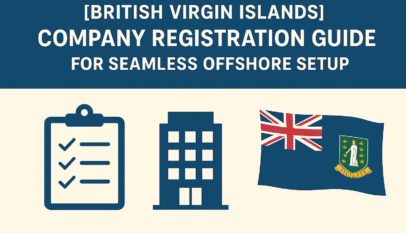
Anxiety counseling online has emerged as a vital resource for individuals seeking support in managing their mental health. It offers convenient access to professional guidance, allowing individuals to connect with licensed therapists from the comfort of their homes. This approach breaks down geographical barriers, making therapy more accessible for those who may feel overwhelmed by traditional in-person consultations.
The rise of digital platforms has transformed the way people engage with mental health services. Online counseling provides various formats, including video calls, messaging, and phone sessions, catering to different preferences. This flexibility enables individuals to choose a model that feels safe and comfortable for them.
As more people recognize the importance of mental wellness, online anxiety counseling continues to grow in popularity. Engaging with a professional in this manner can facilitate personal growth and coping strategies, making it an essential consideration for anyone struggling with anxiety.
Understanding Anxiety
Anxiety is a complex emotional experience that can manifest in various forms. Recognizing its types and symptoms, along with understanding the underlying causes and risk factors, is essential for effective management.
Types and Symptoms of Anxiety
Anxiety encompasses several distinct disorders, each with its own set of symptoms. The most common types include:
- Generalized Anxiety Disorder (GAD): Characterized by excessive worry about everyday issues.
- Panic Disorder: Involves sudden attacks of intense fear and physical symptoms like rapid heartbeat.
- Social Anxiety Disorder: Marked by overwhelming fear of social situations and being judged by others.
- Specific Phobias: Include irrational fears of particular objects or situations.
Symptoms can vary significantly and may include:
- Restlessness or feeling on edge
- Fatigue
- Difficulty concentrating
- Irritability
- Sleep disturbances
Understanding these symptoms is crucial for early identification and intervention.
Causes and Risk Factors
Anxiety disorders can arise from a variety of factors. These include genetic predisposition, environmental influences, and brain chemistry. Key causes and risk factors are:
- Family History: A genetic link can increase the likelihood.
- Major Life Events: Stressful changes, such as loss or trauma, might trigger anxiety.
- Health Issues: Chronic illnesses or hormonal changes can contribute.
- Substance Use: Alcohol or drug misuse may exacerbate anxiety symptoms.
Awareness of these causes helps individuals and professionals tailor interventions for better outcomes.
Approaches to Online Anxiety Counseling
Several effective methods are available for online anxiety counseling. These approaches cater to different needs and preferences, allowing individuals to choose a path that aligns with their specific challenges.
Cognitive-Behavioral Therapy (CBT) Online
Cognitive-Behavioral Therapy (CBT) is a structured, evidence-based approach often delivered through online platforms. It focuses on identifying and modifying negative thought patterns that contribute to anxiety.
Therapists use various techniques, including cognitive restructuring and exposure therapy. These help clients confront fears gradually and reframe their thinking.
Online CBT offers several advantages, such as flexibility in scheduling and the comfort of participating from home. Many platforms provide interactive tools that facilitate engagement and progress tracking, enhancing the effectiveness of the therapy.
Mindfulness-Based Stress Reduction (MBSR) Online
Mindfulness-Based Stress Reduction (MBSR) online employs various mindfulness practices to help participants manage anxiety. It typically includes meditative techniques, yoga, and body awareness exercises.
This approach encourages individuals to focus on the present moment, reducing stress and anxiety levels. Online MBSR programs often involve guided sessions and audio resources, making it accessible for those with different schedules.
Participants may find that regular practice promotes greater emotional regulation and resilience. The flexibility of online formats allows individuals to integrate mindfulness into daily routines effectively.
Interpersonal Therapy (IPT) Online
Interpersonal Therapy (IPT) focuses on improving communication and relationship skills to address anxiety. Online IPT sessions typically involve discussions around personal relationships and social interactions.
This therapy helps clients understand how their relationships influence their emotional well-being. Therapists guide individuals in developing strategies to enhance interpersonal effectiveness and resolve conflicts.
With the online format, clients can engage in therapy from the comfort of their own environment. This may lead to increased openness and honesty in discussions, facilitating deeper insights and personal growth.
Finding the Right Online Therapist
Choosing the right online therapist is crucial to the success of anxiety counseling. Individuals should consider factors such as qualifications, experience, and therapeutic approach when searching for a therapist.
It’s important to review credentials and read client testimonials to assess compatibility. Many platforms allow potential clients to have introductory sessions, enabling them to gauge the therapist’s style.
Communicating specific needs and preferences during these initial sessions can help establish a productive therapeutic relationship. Taking the time to find a suitable therapist enhances the likelihood of achieving desired outcomes in anxiety management.
British Virgin Islands Company Registration Guide for Seamless Offshore Setup
Registering a company in the British Virgin Islands (BVI) is a straightforward process tha…









